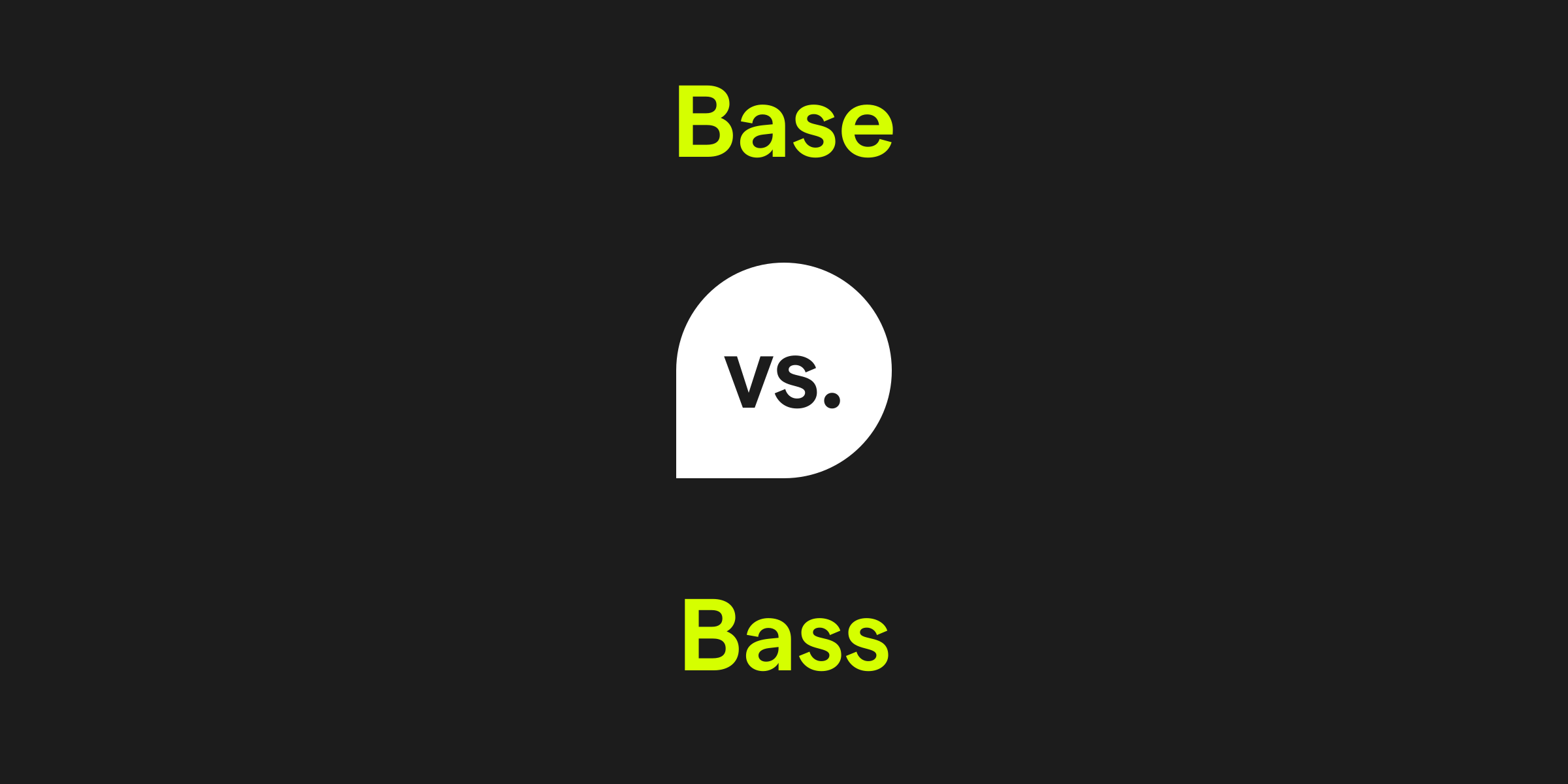Base vs. Bass: What's the Difference?
The words base and bass sound similar but have distinct meanings and uses. Base is typically used as a noun or adjective to refer to the bottom support of something or to describe an underlying condition or foundation. On the other hand, bass can be used as a noun to denote the lowest male singing voice or a type of freshwater fish, as well as an adjective when describing frequencies of sound in the lower range.

How do you use the word base in a sentence?
Base is used to denote the lowest part or foundation of an object or concept. As an adjective, it describes something that forms the fundamental element or core. It's applied in different contexts such as construction, chemistry, and military, emphasizing a supportive role or the starting point from which everything else originates.
Examples of base in a sentence
- The solid base of the column supports the weight of the entire structure.
- During the experiment, we mixed an acid with a base to observe the reaction.
- The troops returned to their base after the mission was completed.
How do you use the word bass in a sentence?
Bass refers to the lowest part of the musical range or as a descriptor for low-frequency sounds. It is often associated with deep vocalists, instruments capable of low notes, and sounds within music. Bass is also a common term in angling, referring to a type of fish often sought by fishermen for its size and the fight it can give.
Examples of bass in a sentence
- His deep bass voice was perfect for the opera's finale.
- The bass guitar laid down a groovy rhythm that had everyone tapping their feet.
- She enjoyed the quiet morning of bass fishing at the lake.
Base and bass definition, parts of speech, and pronunciation
Base definition:
Base (noun): The bottom support of an object or the lower surface on which something rests. Base (adjective): Forming an essential foundation or starting point; fundamental.
Base parts of speech:
Base pronunciation:
Base is pronounced as /beɪs/.
Bass definition:
Bass (noun, music): The lowest male voice or part, below baritone; also refers to musical instruments that produce low-pitched sounds. Bass (noun, fishing): Various types of fish, particularly those caught for sport. Bass (adjective): Of sound, having a frequency at the lower end of the hearing range.
Bass parts of speech:
Bass pronunciation:
Bass is pronounced as /bæs/ for the fish type and /beɪs/ for the musical term.
Base (noun): The bottom support of an object or the lower surface on which something rests. Base (adjective): Forming an essential foundation or starting point; fundamental.
Base parts of speech:
- As a noun, base describes the main support of an object: The base of the lamp is made of marble.
- As an adjective, base refers to something critical that serves as a starting point for further work: The base rules of the game need to be understood by all players.
Base pronunciation:
Base is pronounced as /beɪs/.
Bass definition:
Bass (noun, music): The lowest male voice or part, below baritone; also refers to musical instruments that produce low-pitched sounds. Bass (noun, fishing): Various types of fish, particularly those caught for sport. Bass (adjective): Of sound, having a frequency at the lower end of the hearing range.
Bass parts of speech:
- As a noun in music, bass describes the lowest part of the musical scale: He sings bass in the choir.
- As a noun in fishing, bass refers to a kind of fish: They spent the whole day trying to catch a bass.
- As an adjective, bass describes the lowest part of the sound spectrum: The DJ turned up the bass to get the crowd dancing.
Bass pronunciation:
Bass is pronounced as /bæs/ for the fish type and /beɪs/ for the musical term.
Base vs. Bass in a nutshell
Understanding when to use base vs. bass is crucial to avoid confusion. Base refers to a starting point, foundation, or something at the bottom, and can serve as a noun or adjective. Bass, as a noun, can either denote a low musical voice or type of fish, and as an adjective, it describes low-frequency sounds. Remember, to help differentiate between them, pay attention to the context in which they are used and their pronunciation.
Get AI Writing Assistance Wherever You Type
Make sure your vocabulary is on point and every punctuation mark is in the right place, no matter where you’re working. Grammarly works across more than 1 million websites and apps so you can improve your writing without copying, pasting, or breaking focus.

More Commonly Confused Words
Interest piqued? Pore (not pour) over other commonly confused words to help your writing reach peak (not peek) performance.